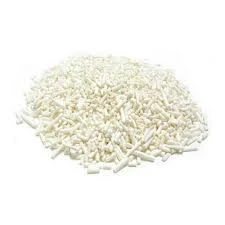
potassium sorbate
Understanding Potassium Sorbate Uses, Benefits, and Safety
Potassium sorbate is a widely used food preservative that serves as an effective agent in preventing spoilage from mold, yeast, and other harmful microorganisms. Its application extends beyond the food industry into pharmaceuticals and cosmetics, making it a versatile compound that raises interest among manufacturers and consumers alike.
As a salt of sorbic acid, potassium sorbate is recognized for its ability to inhibit the growth of molds and yeasts in various products. This characteristic makes it invaluable in extending the shelf life of foods such as cheese, baked goods, and fruit preserves. Notably, it does not significantly affect the flavor or color of food, enabling manufacturers to maintain the sensory attributes while ensuring safety and longevity.
The mechanism by which potassium sorbate works involves disrupting the cellular function of microorganisms. By hindering their ability to reproduce and metabolize, it effectively stops the spoilage process, which can be crucial for preventing foodborne illnesses. In a world where consumer demand for fresh and minimally processed foods continues to rise, potassium sorbate allows producers to maintain safety without resorting to harsher chemical preservatives.
Aside from food, potassium sorbate has found a significant role in the cosmetic and pharmaceutical industries. In cosmetics, it is often used in creams, lotions, and shampoos to prevent microbial growth and ensure the products remain safe for consumer use over time. In pharmaceuticals, it acts as a preservative in various formulations, enhancing the stability of medicines and supplements.
potassium sorbate

One of the appealing aspects of potassium sorbate is its recognized safety profile. Regulatory bodies, including the U.S. Food and Drug Administration (FDA) and the European Food Safety Authority (EFSA), have deemed it safe for consumption in specified amounts. Studies have shown that potassium sorbate does not pose significant health risks when used within these guidelines. For consumers, this provides reassurance that products containing potassium sorbate can be consumed or applied without concern for adverse effects.
Nevertheless, as with any substance, some individuals may exhibit sensitivity or allergic reactions, albeit rarely. Therefore, it is essential for manufacturers to label products accurately, allowing consumers to make informed choices. This transparency is crucial, especially in an age where consumers are increasingly concerned about the ingredients in their food and personal care items.
In recent years, the rise of clean label trends has prompted some industries to explore natural alternatives to synthetic preservatives. While potassium sorbate remains an effective choice, the competition posed by natural preservatives may reshape its usage in the future. However, for the time being, potassium sorbate stands out as a proven and effective solution to prolonging the shelf life of various products while ensuring consumer safety.
In conclusion, potassium sorbate is a significant player in food preservation, cosmetics, and pharmaceuticals. It helps prevent spoilage, enhances product stability, and provides safety assurance to consumers. As the industry continues to evolve, its role may adapt, but the foundational benefits of potassium sorbate will undoubtedly keep it relevant in food technology and beyond. Understanding this compound allows consumers and manufacturers to navigate a world increasingly focused on food safety and quality.
-
Understanding Synthetic Rubber OptionsNewsApr.27,2025
-
Trichloroisocyanuric Acid: Essential for Clean and Safe WaterNewsApr.27,2025
-
Sodium Dichloroisocyanurate: Key to Safe Water TreatmentNewsApr.27,2025
-
Sodium Acid Pyrophosphate: Essential in Modern Food ProcessingNewsApr.27,2025
-
Essential Water Treatment ChemicalsNewsApr.27,2025
-
Denatured Alcohol and Its Industrial UsesNewsApr.27,2025
-
The Versatile Uses of Sodium BicarbonateNewsApr.24,2025
Hebei Tenger Chemical Technology Co., Ltd. focuses on the chemical industry and is committed to the export service of chemical raw materials.
-

view more DiethanolisopropanolamineIn the ever-growing field of chemical solutions, diethanolisopropanolamine (DEIPA) stands out as a versatile and important compound. Due to its unique chemical structure and properties, DEIPA is of interest to various industries including construction, personal care, and agriculture. -

view more TriisopropanolamineTriisopropanolamine (TIPA) alkanol amine substance, is a kind of alcohol amine compound with amino and alcohol hydroxyl, and because of its molecules contains both amino and hydroxyl. -

view more Tetramethyl Thiuram DisulfideTetramethyl thiuram disulfide, also known as TMTD, is a white to light-yellow powder with a distinct sulfur-like odor. It is soluble in organic solvents such as benzene, acetone, and ethyl acetate, making it highly versatile for use in different formulations. TMTD is known for its excellent vulcanization acceleration properties, which makes it a key ingredient in the production of rubber products. Additionally, it acts as an effective fungicide and bactericide, making it valuable in agricultural applications. Its high purity and stability ensure consistent performance, making it a preferred choice for manufacturers across various industries.











